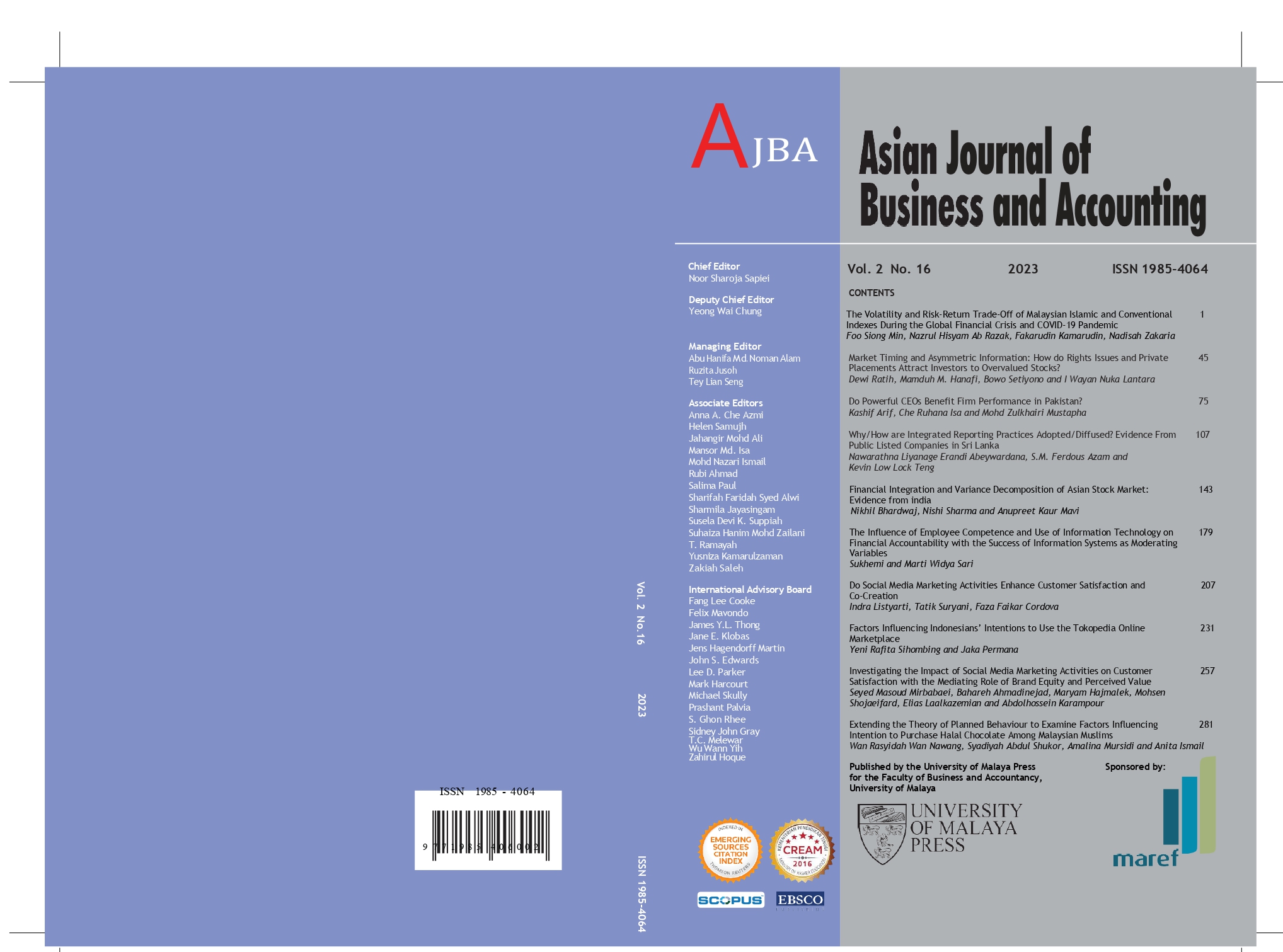Do Powerful CEOs Benefit Firm Performance in Pakistan?
Main Article Content
Abstract
Manuscript type: Research paper
Research aims: This study examines the impact of Chief Executive Officer
(CEO) power dimensions on firm performance.
Design/Methodology/Approach: A panel data of 110 Pakistani firms
listed on the Pakistan Stock Exchange for the period of 12 years (2008-
2019) was analysed using the GMM approach.
Research findings: The GMM regression results revealed significant
relationships. The analysis suggests that CEOs with considerable
structural, ownership, prestige, and expert power tend to exhibit
superior performance, as these factors are positively correlated with
firm performance. Conversely, CEO family power appears to have no
discernible impact on firm performance. Importantly, the robustness of
our findings underscores the consistent nature of these relationships.
Theoretical contribution/Originality: This study makes a valuable
contribution to the existing literature by demonstrating the positive
influence of CEO power on firm performance, which aligns with the
theoretical framework of the Approach/Inhibition theory of power.
The originality of this research stems from its examination of individual
dimensions of CEO power and their impact on firm performance, as well
as the inclusion of the additional dimension of family power.
Practitioner/Policy implication: The insight from this study suggests
that powerful CEO leadership is beneficial for firm performance and the
concentration of power at the CEO position should be seen positively
rather than the negative perspective provided by agency theory.
